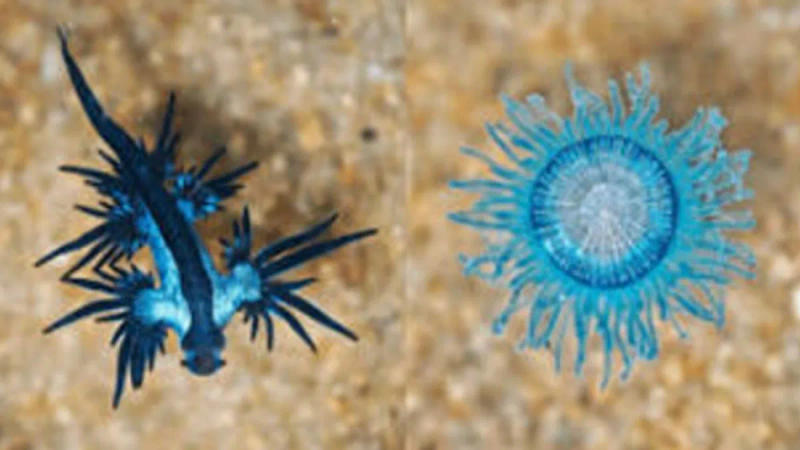Published 15:49 IST, December 21st 2023
Chennai: Blue Dragons SPOTTED near Besant Nagar Beach, but here's a WARNING!
Blue dragons carry a mild venom, and if they sting, it could potentially lead to issues, particularly for children and the elderly.

Advertisement
Chennai: Attention beachgoers! If you come across visually appealing, vibrant creatures floating near the seashore in Chennai, do not touch them. Over the last 2 days, beachgoers in Besant Nagar have encountered blue dragons (Glaucus atlanticus), a species of sea slug, both on the shore and in the nearby waters. Typically inhabitants of open sea surfaces, these creatures occasionally find themselves closer to the shore, owing to storms or changes in oceanic conditions.
Srivatsan Ramkumar of the Environmentalist Foundation of India was the first to spot these intriguing sea slugs and share images with the public.
What are Blue Dragons?
Blue dragons, scientifically known as Glaucus atlanticus, are a species of small, strikingly coloured sea slugs. These marine creatures are equipped with interesting adaptations for survival. Blue dragons are typically found in open ocean waters, floating upside down on the surface tension. They have a vibrant blue color on their dorsal side, which faces upwards, serving as camouflage against the blue hues of the ocean.
These sea slugs are often mistaken for nudibranchs, but they belong to a distinct group called aeolid nudibranchs. Blue dragons feed on other potentially dangerous marine organisms, such as Portuguese man o' war, and store the venomous cells from their prey for their own defence. As mentioned earlier, their venom is considered "mild," but it can still cause discomfort and irritation, especially for vulnerable groups like children and the elderly.
Blue dragons are fascinating examples of marine life, showcasing the intricacies of adaptation and survival in diverse ocean ecosystems.
According to marine biologists, these blue dragons carry a mild venom, and if they sting, it could potentially lead to issues, particularly for children and the elderly. It's essential to be cautious and avoid any contact to prevent any potential problems.
Updated 15:49 IST, December 21st 2023




